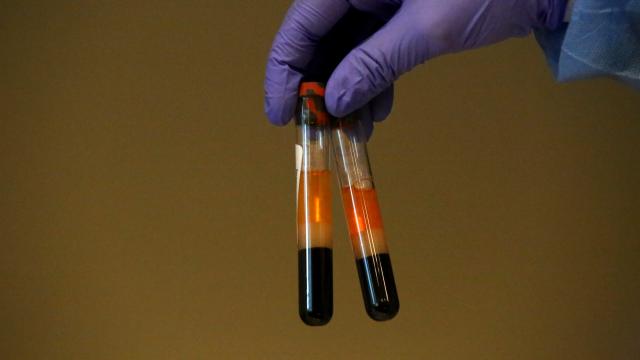A new study from Iceland provides reassurance that our antibodies to the coronavirus that causes covid-19 can last at least four months — assuming that we produce them in the first place.
The study, published in the New England Journal of Medicine on Tuesday, looked at blood samples collected from over 30,000 people in Iceland, a bit under 10% per cent of the small Nordic country’s total population. These included more than 4,000 people who had either tested positive for the novel coronavirus, SARS-CoV-2, or were suspected to have been exposed to someone with the virus. The samples were tested for several different types of antibodies tailored specifically to the virus.
All told, they estimated that just under 1% per cent of the country had contracted covid-19 during the first wave of the outbreak there, which had largely started to die down by late April. They also estimated that more than half of all cases had been detected through earlier diagnostic testing. And most importantly, they found that the level of antibodies in these survivors did not noticeably drop up to four months after their initial infection.
“Our results indicate that antiviral antibodies against SARS-CoV-2 did not decline within 4 months after diagnosis,” the authors wrote.
[referenced id=”1232098″ url=”https://gizmodo.com.au/2020/07/latest-coronavirus-science-hopeful-evidence-for-longer-lasting-immunity/” thumb=”https://gizmodo.com.au/wp-content/uploads/2020/07/18/rjkutvynr33evhu0eevk-300×169.jpg” title=”Latest Coronavirus Science: Hopeful Evidence for Longer-Lasting Immunity” excerpt=”In this roundup of the latest research into the covid-19 pandemic, we cover encouraging evidence for immunity, why the virus may not be very airborne, and an unexpected effect of the pandemic on our weather forecasts.”]
The study’s findings do conflict with some earlier estimates of how long antibodies may last in people who contract covid-19. But these more pessimistic estimates have come from studies with small sample sizes, while at least one large but preliminary study supports the idea that antibodies can last for months in most people. That study looked at blood samples taken from nearly 20,000 people in New York City, home of the single deadliest outbreak of covid-19 reported so far, and found that neutralising antibodies remained stable for three months. It’s possible — even likely — that antibodies can last longer than four months, but not enough time has passed for scientists to collect and analyse the relevant data to know for sure.
Reassuring as these results are, they don’t prove that survivors are completely protected from reinfection. In both this study and the New York study, roughly 10% of people with confirmed covid-19 seemingly didn’t produce detectable antibodies to SARS-CoV-2, and it’s these people who may be more susceptible to a second infection. The few confirmed reports of reinfection to date also haven’t ruled out that reinfection can happen even in people who have antibodies. That said, it’s very likely having antibodies will provide some measure of immunity to covid-19, either in preventing infections completely or blunting how severe reinfection could be.
[referenced id=”1230586″ url=”https://gizmodo.com.au/2020/07/whats-the-evidence-for-covid-19-reinfection/” thumb=”https://gizmodo.com.au/wp-content/uploads/2020/07/14/qxo2ab0vyq08amozxc4l-300×169.jpg” title=”What’s the Evidence for Covid-19 Reinfection?” excerpt=”A small bright spot in the coronavirus disaster has been that people who become sick appear to have at least temporary immunity to the virus. But over the weekend, a Vox article written by a primary care doctor in Washington D.C. laid out an imminent and frightening pandemic scenario, based…”]
The Iceland study also provides us with another estimate of how deadly covid-19 can be in a population. It found an infection fatality rate of 0.3% in Iceland, which accounts for all cases, including those without symptoms. This IFR is lower than estimates in other countries but is within the range that other studies have found. The population fatality of covid-19 likely depends heavily on factors like the age distribution and average health of a country’s residents and whether local outbreaks are overwhelming a region’s hospitals or not. Recently implemented and future treatments, such as steroids, may also further lower the risk of dying over time.
In Iceland, covid-19 fortunately never gained a foothold like it has in other countries. As of September 2, there have only been 10 reported deaths linked to the viral illness within the country, while there are only about 100 active cases currently and a bit over 2,000 reported cases in total.
